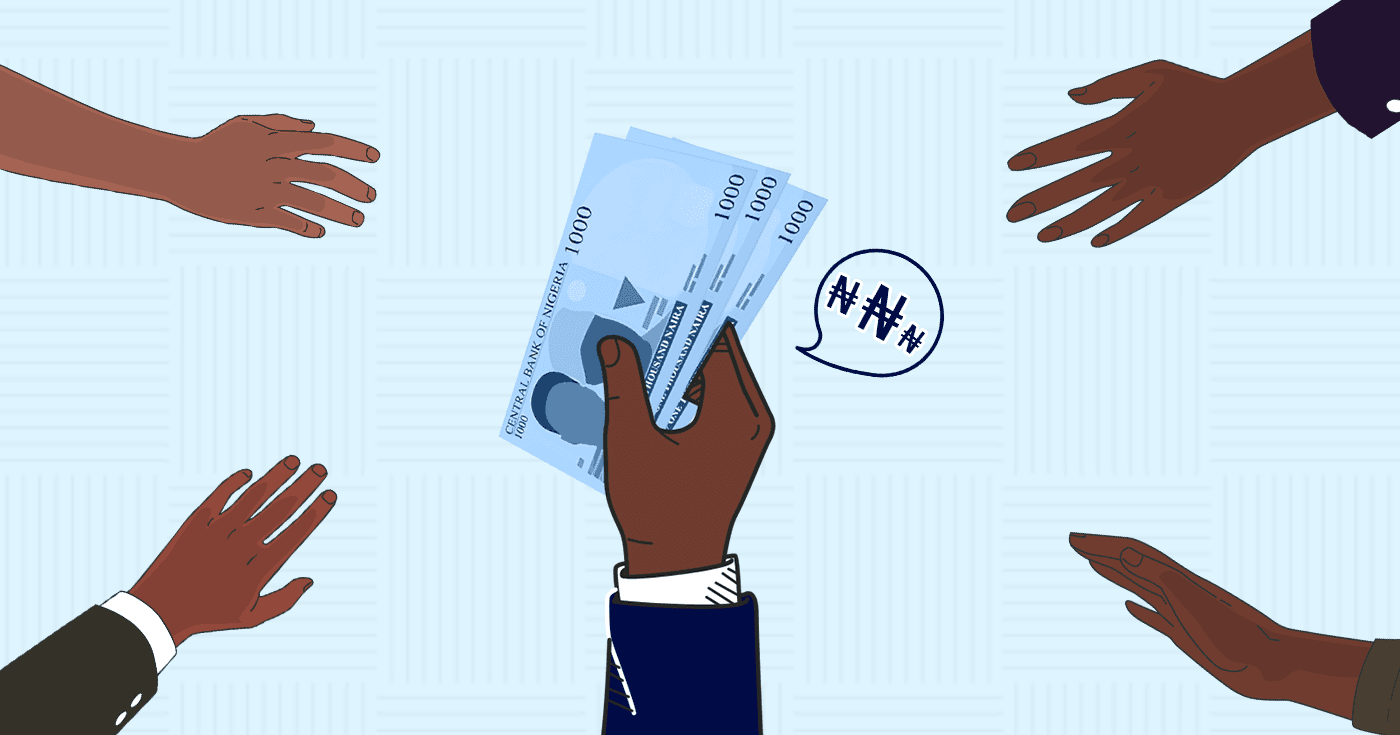Navigating Black Tax and Bills On A Nigerian Salary

Let’s face it, earning in Nigeria already feels like an extreme sport. Add Black Tax to the mix, and it’s giving survival-of-the-fittest.
Omo, One minute you're celebrating your new job, the next you're somebody’s pension plan, school fees sponsor, and urgent 2k donor. It’s like people forget you even have needs, or they think you’re Jesus.
At Squareme, we get it. Not just because we’ve crunched the numbers, but because we live this reality too.
Black Tax is that unspoken obligation to support parents, siblings, friends or extended family financially, and it isn’t a new culture, but an offshoot of our communal values as Africans. Research shows that 83% of Nigerians who earn a salary pay black tax. Of the 83% of income earners who pay black tax, 56% pay it monthly, and 27% pay occasionally. Only 17% of the total working population does not pay black tax at all. That’s 8 in every 10 Nigerians.
While it's a beautiful display of our values, it can also feel overwhelming when paired with rent, food, transport, service subscriptions, NEPA, data, and your dreams.
So how do you strike a balance?
Here’s how we (and many of our users) are learning to stay afloat, stay generous, and still save smart using the Squareme app.
1. Know Your “Spendable” Income and Budget (a.k.a Income - Bills - Tax - Black Tax)
It’s not how much you earn. It’s how much you can hold on to after the family cut.
Use Squareme’s virtual cards to store funds for your monthly subscriptions and sort your data or utility bills as soon as your salary drops. Mentally earmark a certain amount as black tax. Work with a monthly budget.
That way, you’re not making impulsive transfers out of guilt or without a plan. You already saw it coming and did your best to accommodate it. And the peace of mind you’ll enjoy from this? Priceless.
Instead of reacting to every “Can you help me with ₦10k real quick?” message, use your monthly budget. Even if it’s ₦15k a month, you know what’s set aside. No guilt. No confusion. Just structure.
2. Track Your Bills, And Stay In Control
We know how it goes: You send your cousin money for JAMB form, forget your rent is due next week, and now you’re begging your landlord for three more days of grace. It just never ends.
The way Squareme works, you can see where each fund goes from the categories down to the contact you send to. And if you’re ever confused or trying to balance books, you can always request account statements.
3. Say “No” Affirmatively
Squareme can’t help you with this one, but the hardest part of Black Tax? Boundaries.
Everyone will have you believe their needs are urgent and important, but remind yourself that you have urgent and important needs too. Once external requests have used up the amount you budgeted as black tax, every other request should meet a wall of no. Set clear boundaries.
Sit down with your people and explain your finances. Have the tough talk with those who matter to you. They’ll get it.
It’s not selfish. It’s smart.
4. Block Them
Just kidding (but are we really?)
If you’ve explored all diplomatic options and the billing doesn’t reduce or disappear, just press Ctrl + Z or backspace. Remove the problem. We’re not sure how that’ll go for you, but at least your salary will last longer than salary week.
Final Thoughts
We won’t lie, this adulting thing is hard. But you don’t have to choose between caring for your people and caring for yourself. With the right tools, you can do both.
At Squareme, we built our platform with Nigerian realities in mind — from Black Tax to bills, from savings goals to emergency funds.
So whether you’re sending a small or big bit, just know this:
You don’t need to be rich to be financially wise. You just need a better plan.
And we’re here for you every step of the way.
Try Squareme now.
Click here to download the app.
Stay generous. Stay in control.
